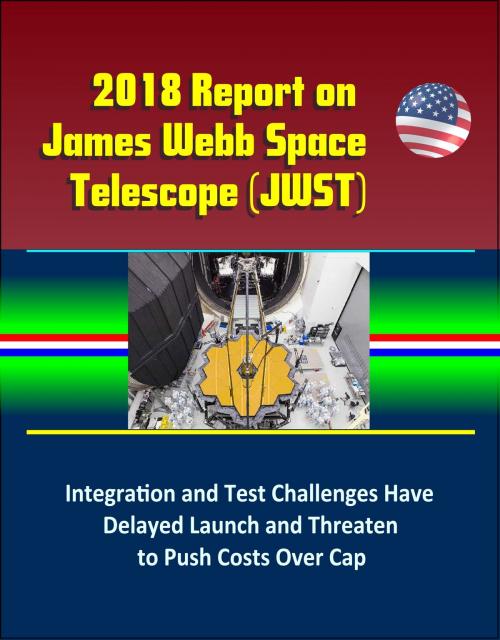2018 Report on James Webb Space Telescope (JWST): Integration and Test Challenges Have Delayed Launch and Threaten to Push Costs Over Cap
Nonfiction, Science & Nature, Science, Physics, Astronomy, Astrophysics & Space Science| Author: | Progressive Management | ISBN: | 9781370563555 |
| Publisher: | Progressive Management | Publication: | March 1, 2018 |
| Imprint: | Smashwords Edition | Language: | English |
| Author: | Progressive Management |
| ISBN: | 9781370563555 |
| Publisher: | Progressive Management |
| Publication: | March 1, 2018 |
| Imprint: | Smashwords Edition |
| Language: | English |
JWST, a large, deployable telescope intended to be the successor to the Hubble Space Telescope, is one of NASA's most complex and expensive projects, at an anticipated cost of $8.8 billion. Congress set an $8 billion JWST development cost cap in 2011, and the remaining $837 million is for its operations costs. JWST is intended to revolutionize our understanding of star and planet formation and advance the search for the origins of our universe. With significant integration and testing planned for the remaining period until launch, the JWST project will still need to address many challenges during the remainder of integration and testing.
In 2017, the National Aeronautics and Space Administration's (NASA) James Webb Space Telescope (JWST) project delayed its launch readiness date by at least 5 months, and further delays are likely. The delay—from October 2018 to a launch window between March and June 2019—was primarily caused by components of JWST's spacecraft taking longer to integrate than planned. JWST made considerable progress toward the completion of integration and test activities in the past year. However, the project used all remaining schedule reserve—or extra time set aside in the schedule in the event of delays or unforeseen risks—to address technical issues, including an anomaly on the telescope found during vibration testing. Extending the launch window provided the project up to 4 months of schedule reserve. However, shortly after requesting the new launch window in September 2017, the project determined that several months of schedule reserve would be needed to address lessons learned from the initial folding and deployment of the observatory's sunshield (see image). Given remaining integration and test work ahead—the phase in development where problems are most likely to be found and schedules tend to slip—coupled with only 1.5 months of schedule reserves remaining to the end of the launch window, additional launch delays are likely. The project's Standing Review Board will conduct an independent review of JWST's schedule status in early 2018 to determine if the June 2019 launch window can be met.
JWST, a large, deployable telescope intended to be the successor to the Hubble Space Telescope, is one of NASA's most complex and expensive projects, at an anticipated cost of $8.8 billion. Congress set an $8 billion JWST development cost cap in 2011, and the remaining $837 million is for its operations costs. JWST is intended to revolutionize our understanding of star and planet formation and advance the search for the origins of our universe. With significant integration and testing planned for the remaining period until launch, the JWST project will still need to address many challenges during the remainder of integration and testing.
In 2017, the National Aeronautics and Space Administration's (NASA) James Webb Space Telescope (JWST) project delayed its launch readiness date by at least 5 months, and further delays are likely. The delay—from October 2018 to a launch window between March and June 2019—was primarily caused by components of JWST's spacecraft taking longer to integrate than planned. JWST made considerable progress toward the completion of integration and test activities in the past year. However, the project used all remaining schedule reserve—or extra time set aside in the schedule in the event of delays or unforeseen risks—to address technical issues, including an anomaly on the telescope found during vibration testing. Extending the launch window provided the project up to 4 months of schedule reserve. However, shortly after requesting the new launch window in September 2017, the project determined that several months of schedule reserve would be needed to address lessons learned from the initial folding and deployment of the observatory's sunshield (see image). Given remaining integration and test work ahead—the phase in development where problems are most likely to be found and schedules tend to slip—coupled with only 1.5 months of schedule reserves remaining to the end of the launch window, additional launch delays are likely. The project's Standing Review Board will conduct an independent review of JWST's schedule status in early 2018 to determine if the June 2019 launch window can be met.















